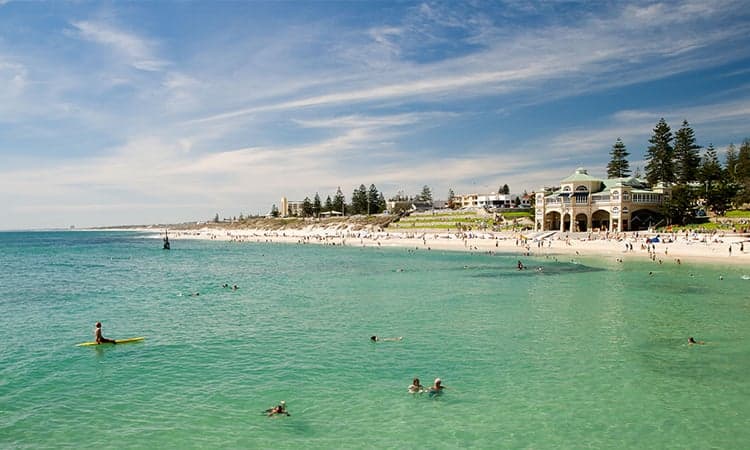A couple of weeks back, I’ve been feeling that familiar tightness in my chest, the one that comes with too much mental overhead e.g., juggling too many deadlines, inbox overload.
It’s a feeling I know all too well, and a recent trip to Perth made me realize just how much I crave a slower pace of life.
We all know the drill: the constant hustle, the pressure to “keep up,” the feeling like there just aren’t enough hours in the day. It takes a toll.
For me, it meant the inability to fall asleep, constant anxiety and unable to focus well.
Looking around, I see similar stories – friends around my age dealing with heart issues, burnout, asthma relapse or new cancer markers.
In Singapore, especially, the “always-on” work culture makes it easy to get sucked into this fast lane, even neglecting our own well-being in the process.
Catching up with friends in Perth was a breath of fresh air.
Their lifestyle is a testament to the power of slowing down. Which might be a contributing reason to their standing on World Happiness Report 2024 where they are at #10. (Singapore is at #30)
Other benefits of a slower pace of life include improved health, reduced anxiety and stress, stronger connections with others, more time for enjoyable activities, and an increase in overall contentment.
Living slowly allows for better physical health by engaging in activities like walking outdoors and cooking balanced meals at home.
It also helps reduce stress and anxiety by encouraging deeper relaxation and providing a different perspective on life’s challenges.
Slower living fosters stronger relationships by allowing more meaningful time with loved ones and provides opportunities to engage in favourite hobbies.
My friend’s husband has time for hobbies such as woodworking, growing aquatic plants, weekend BBQs and many more.
It’s a stark contrast to the constant rush we face here. There’s a cultural difference too. In Australia, there is also the tradition of Friday afternoon drinks signalling the end of the workday.
The vastness of space also helps.
There is this thing called the Overview Effect that is experienced by astronauts viewing Earth from space.
This phenomenon leads to feelings of interconnectedness with all life, a renewed sense of purpose, and a deeper understanding of the fragility of our planet.
The experience often evokes emotions like awe, reverence and gratitude and promote eudaemonic well-being.
You don’t need to be an astronauts to experience this. It can be achieved easily in vast space when you look into the abyss of endless roads, gaze into the sea’s horizon or admire high mountains.
Everything that cannot be found on the tiny island where I stay at.
(Side note: I was told one of the ways to get permanent residency is to have 50% of your kids gain employment post undergrad in Australia. Something I am putting a pin on for serious future consideration)
Until emigration could perhaps be more of a reality than a pipe dream, I am drawing lessons from my trip to adjust my lifestyle.
Because if you think about it, my friends at Perth has the same 24 hours as anyone living in fast-paced cities like Singapore or New York.
How can I gain more margins in my life so I can spend more time on… me?
In Hell Yeah or No, Derek Sivers’ main premise in the book is to set a rule for yourself: “If it’s not a hell yes, then it’s a no thank you.”
Only by saying no, can you have bandwidth to say Yes to things that truly matter.
And the easiest no thank you for me is information consumption.
E.g. I don’t have TikTok and I barely check my Instagram. As Trung Phan of Not Investment Advice shared in one of his podcast episode: “I don’t have another 45 mins a day to spend on another social media platform.”
And let’s get real. Nobody dwells on TikTok for just “45 mins”
Recently I also unsub from many newsletters and podcasts that my OCD dictates I read/listen. The open loop of leaving them unread/unlisten triggers me so much that I was just adding unnecessary stress onto myself.
All these seem immaterial by themselves but it all adds up to a huge chunk of your time.
The other more extreme thing I am planning is to drop one of my assignments. I am lucky that I am self-employed (my book on self-employment will be out in July) and that allows me to pick and choose.
Doing less may allow me to finally dedicate time to writing again.
Granted, Singapore is expensive. I have 4 kids and I need to fulfill my obligations on them at least up to their undergrad.
To meet that target, I would need at least 3 assignments.
But 3 assignments (or more) also include extras for me to lead a more than a comfortable lifestyle.
But do I really need to optimise towards that?
Don’t get me wrong, I am by no means wealthy.
My frivolous spending habits during my earlier years continue to haunt me.
But as I shared with my friend Jiayi on her podcast, a lot of extra money back then was spent on material pursuit.
It gave me pleasure but never happiness.
Do I really need more stuff?
In Subtract: The Untapped Science of Less, Leidy Klotz discussed about the “More” Bias.
We always deduce that the answer to every problem is “more” but that always not the case.
My friend once invited me to his yacht. On the way to his boat, he pointed to the larger ones nearby.
The one on the left belonged to a plastic surgeon and the one next to it is owned by a top lawyer.
But they are always parked as the owners don’t have time to use them. (And likely work has to go on to finance these expensive toys.)
In the same book, there is the mention of not buying stuff but buy time instead.
I think all of us would prefer to have a smaller TV and time to watch it than a huge TV and no time to watch it.
This journey towards a slower pace won’t be easy, but it’s a journey worth taking.
By reclaiming control over our time, we can create space for what truly matters – our health, our passions, and the people we love.
Here’s to a life less busy and more savoured.





